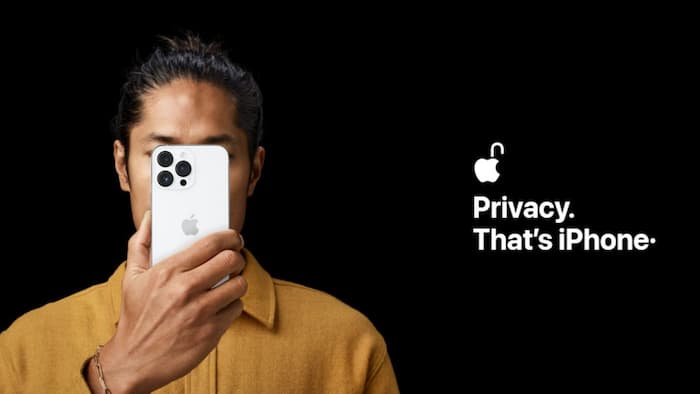
Written By Shweta Ganjoo
Published By: Shweta Ganjoo | Published: Oct 31, 2023, 06:07 PM (IST)


Apple devices have long been known for their privacy features. The company’s stringent take on the topic has also aggravated companies like Meta that rely heavily on user data from ads and cookies. So, when people, particularly politicians received a hacking notification on their iPhones, stating that their devices could be targeted by ‘state-sponsored attackers’, it caused a furore on the internet. Soon after, Apple issued a clarification stating that the alerts might have been a false alarm. Also Read: iPhone Fold May Finally Solve The Crease Problem With New Hinge Tech: Here's How
“State-sponsored attackers are very well-funded and sophisticated, and their attacks evolve over time…Detecting such attacks relies on threat intelligence signals that are often imperfect and incomplete. It’s possible that some Apple threat notifications may be false alarms, or that some attacks are not detected,” Apple said in a statement. Also Read: 7 Hidden iPhone Features People Miss To Check
“We are unable to provide information about what causes us to issue threat notifications, as that may help state-sponsored attackers adapt their behavior to evade detection in the future,” the company added.
What is the government saying?
Reacting to these notifications, the Minister of State for Electronics and Technology Rajeev Chandrasekhar said that the Centre expects the company to come clear on “threat warnings” sent to people in over 150 countries. He also said the government is “committed and duty-bound” to protect privacy of its citizens and it takes this responsibility “very seriously” and that it will investigate these “threat notifications”.
“Our government is committed and duty bound to protect privacy of our citizens and we take this responsibility very seriously. Government will investigate these threat notifications and also Apple’s claims of being secure and privacy compliant devices,” Chandrasekhar wrote in a post on X.
After tdys “threat notifications” being recd by many people incldng MPs and those in geopolitics, we expectnApple to clarify the following
➡️if its devices are secure ;
➡️why these “threat notifications” are sent to people in over 150 countries ;
➡️bcoz apple has repeatedly…
— Rajeev Chandrasekhar 🇮🇳 (@Rajeev_GoI) October 31, 2023
Union Minister for Communications, Electronics and IT Ashwini Vaishnaw also reacted to the developments reiterating Apple’s statement that the alert may have been a false alarm. “From the mail sent by from Apple, it can be understood that they have no clear information, they have sent alerts on the basis of an estimate. This is vague. Apple has released a clarification that the allegations by compulsive critics are not true. Such advisories have been sent to people in 150 countries,” he said.
#WATCH | On multiple opposition leaders allege ‘hacking’ of their Apple devices, Union Minister for Communications, Electronics & IT Ashwini Vaishnaw says “From the mail sent by from Apple, it can be understood that they have no clear information, they have sent alerts on the… pic.twitter.com/hSxOJicbwV
— ANI (@ANI) October 31, 2023
How safe is your Apple device?
Apple sends threat notifications to inform and assist users when it detects that they may have been targeted by state-sponsored attackers. “Unlike traditional cybercriminals, state-sponsored attackers apply exceptional resources to target a very small number of specific individuals and their devices, which makes these attacks much harder to detect and prevent. State-sponsored attacks are highly complex, cost millions of dollars to develop, and often have a short shelf life. The vast majority of users will never be targeted by such attacks,” Apple wrote in a support page detailing threat notifications.
That said, Apple deploys some of the most stringent security and privacy measures in its devices. This not only includes popular features such as Touch ID and Face ID, but also the ones that prohibit companies from tracking users and their online activity and in many cases even stealing their private data. It also uses host of security features that are built within its operating systems that prevent hackers from gaining remote access to the targeted device should they find a vulnerability or a bug — all of which makes Apple devices extremely secure.
How can you protect yourself?
Here are some tips you can follow to protect yourself from such attacks:
— Download and install the latest version of software update on your Apple device.
— Keep checking your email and iMessage notifications and the email addresses and phone numbers associated with your Apple ID as Apple will send a notification there.
— Do not click on links from unknown sources and senders.
— Do not share your private information or OTP with unknown sources.
— Use two-factor authentication on all possible apps.
— Enter lockdown mode on your Apple device.